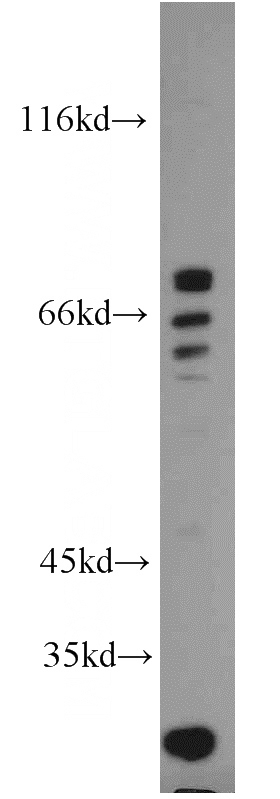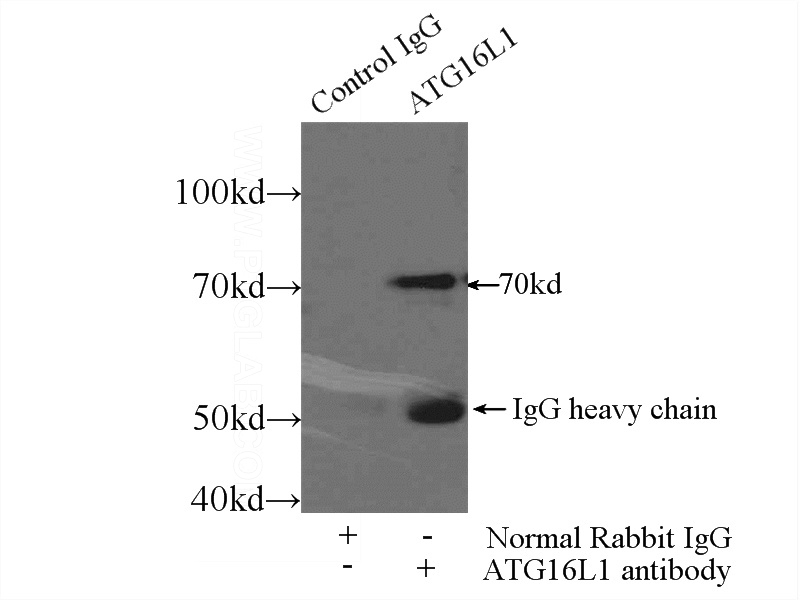-
Product Name
ATG16L1 antibody
- Documents
-
Description
ATG16L1 Rabbit Polyclonal antibody. Positive IP detected in MCF-7 cells. Positive WB detected in MCF7 cells, Jurkat cells. Observed molecular weight by Western-blot: 63-71kd
-
Tested applications
ELISA, WB, IP
-
Species reactivity
Human,Mouse,Rat; other species not tested.
-
Alternative names
APG16 like 1 antibody; APG16L antibody; ATG16L antibody; ATG16L1 antibody; Autophagy related protein 16 1 antibody; FLJ00045 antibody; FLJ10035 antibody; FLJ10828 antibody; FLJ22677 antibody; IBD10 antibody; WDR30 antibody
-
Isotype
Rabbit IgG
-
Preparation
This antibody was obtained by immunization of ATG16L1 recombinant protein (Accession Number: BC000061). Purification method: Antigen affinity purified.
-
Clonality
Polyclonal
-
Formulation
PBS with 0.02% sodium azide and 50% glycerol pH 7.3.
-
Storage instructions
Store at -20℃. DO NOT ALIQUOT
-
Applications
Recommended Dilution:
WB: 1:200-1:2000
IP: 1:200-1:1000
-
Validations

MCF7 cells were subjected to SDS PAGE followed by western blot with Catalog No:108291(ATG16L1 antibody) at dilution of 1:1000

IP Result of anti-ATG16L1 (IP:Catalog No:108291, 4ug; Detection:Catalog No:108291 1:300) with MCF-7 cells lysate 2000ug.
-
Background
Atg16L1 mediates the cellular degradative process of autophagy and is considered a critical regulator of inflammation based on its genetic association with inflammatory bowel disease. ATG16L1 has been implicated in Crohn’s disease.
-
References
- Ulbricht A, Eppler FJ, Tapia VE. Cellular mechanotransduction relies on tension-induced and chaperone-assisted autophagy. Current biology : CB. 23(5):430-5. 2013.
Related Products / Services
Please note: All products are "FOR RESEARCH USE ONLY AND ARE NOT INTENDED FOR DIAGNOSTIC OR THERAPEUTIC USE"
